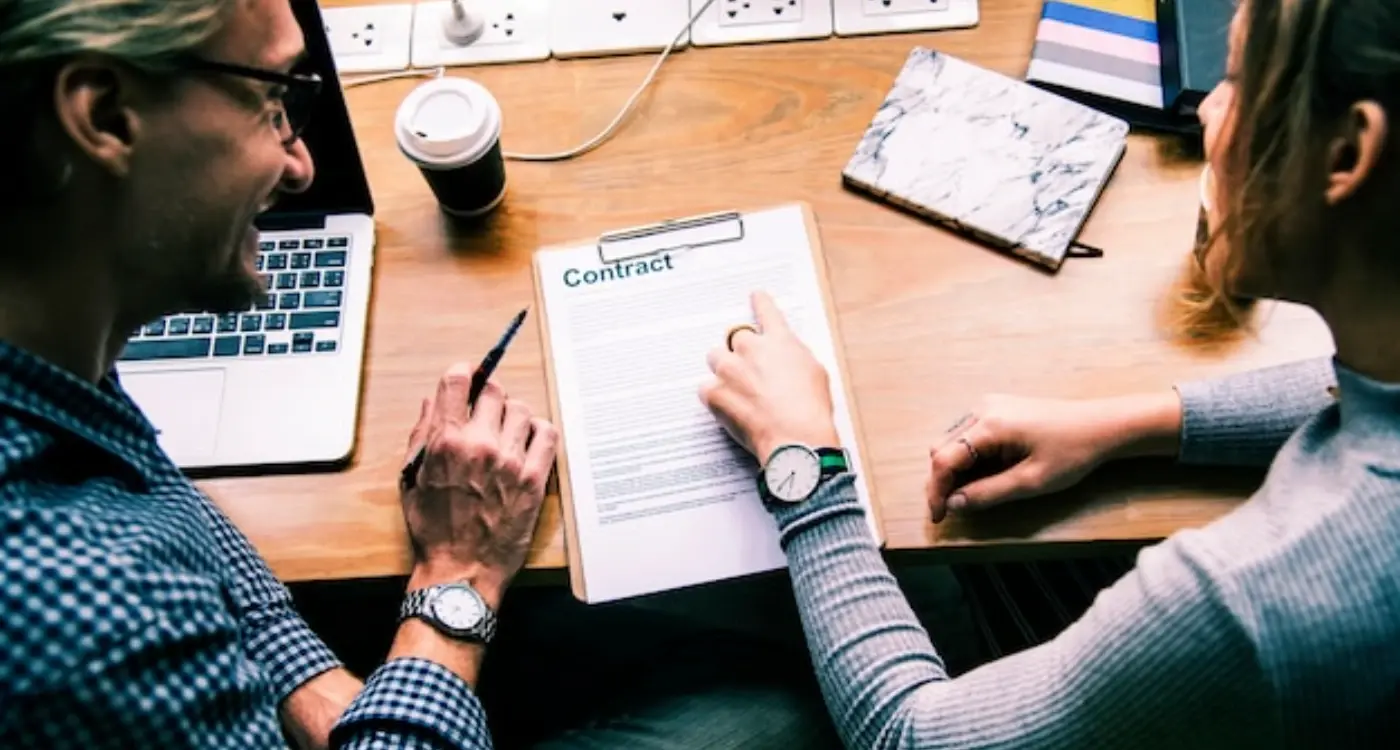How Do I Protect My App Idea From Being Stolen?
Every day, someone creates an app that changes how we live, work, or play. But here's something that might surprise you—most brilliant app ideas never make it to market because their creators spend more time worrying about theft than actually building something people want. I've watched countless entrepreneurs become paralysed by the fear that someone will steal their concept, often missing golden opportunities whilst they obsess over protection.
The truth is, protecting your app idea isn't just about legal documents and patents—though those play their part. It's about understanding what actually needs protection, when to share information, and how to balance openness with security. Getting this balance wrong can either leave you vulnerable or isolate you from the very people who could help bring your vision to life.
Ideas are common, but the ability to execute them well is rare
This guide will walk you through the practical steps to protect app ideas without letting paranoia derail your progress. We'll cover everything from app intellectual property basics to mobile app patents, plus the common pitfalls that catch even experienced developers off guard. By the end, you'll know exactly how to safeguard your concept whilst building the relationships and partnerships you need to succeed.
Understanding What Makes an App Idea Worth Protecting
I've worked with hundreds of clients over the years, and there's one question that comes up time and time again—is my app idea actually worth protecting? It's a fair question because not every app concept needs the same level of security. Some ideas are genuinely groundbreaking whilst others are, well, let's just say they're variations on existing themes.
The reality is that truly unique app ideas are rarer than you might think. Most successful apps take existing concepts and improve them or combine features in clever ways. But that doesn't mean your idea isn't valuable! What makes an app worth protecting isn't always about being completely original.
Key factors that make your app idea protection-worthy
- It solves a real problem that people actually have
- Your approach or method is genuinely different from existing solutions
- You've identified a specific target market that's underserved
- The idea has clear commercial potential
- You've got a unique feature set or user experience
Here's the thing—execution matters more than the initial idea. I've seen brilliant concepts fail because of poor execution, and I've watched simple ideas become million-pound businesses because they were executed perfectly. Your app idea becomes worth protecting when you've put serious thought into how it will work, who will use it, and why they'll choose it over existing alternatives.
Legal Ways to Protect Your Mobile App Concept
Right, let's talk about the proper legal routes you can take to protect app idea concepts. I'll be honest—there's no magic bullet that'll stop someone from copying your brilliant app idea entirely, but there are several legal tools that can make life much harder for potential copycats.
Intellectual Property Protection Options
Your main weapons in the legal arsenal are trademarks, copyrights, and patents. Trademarks protect your app name, logo, and branding elements—think of how Apple protects the iPhone name. Copyright automatically covers your app's code, design elements, and written content the moment you create them. Patents are trickier; they protect unique technical processes or innovative features, but they're expensive and take ages to get approved.
Trade secrets are another route worth considering. If your app relies on a special algorithm or unique process, keeping it secret might be more valuable than patenting it. After all, the recipe for Coca-Cola has been a trade secret for over a century!
File for trademark protection early—even before your app launches. It's relatively cheap and gives you strong protection for your brand identity.
Building Your Legal Defence Strategy
Here's what I'd recommend doing in order of priority:
- Register your app name and logo as trademarks
- Document everything—keep records of your development process
- Consider patent protection for truly innovative technical features
- Register your business and establish clear ownership of app intellectual property
- Keep detailed records of when you created different elements
The key is being proactive rather than reactive. These legal protections work best when they're in place before you need them, not after someone's already copied your concept.
Non-Disclosure Agreements and When to Use Them
Non-disclosure agreements—or NDAs as we call them in the industry—are one of the most straightforward ways to protect your app idea when you need to share details with other people. Think of them as a legal promise that says "I won't tell anyone about what you're showing me." They're not complicated documents, but they can give you real peace of mind.
I use NDAs regularly when meeting with potential investors, freelance developers, or marketing agencies. You don't need one for every single conversation though; save them for situations where you'll be sharing detailed features, technical specifications, or your business model. Your barista doesn't need to sign an NDA when you mention you're working on an app!
When NDAs Make Sense
- Meeting with potential business partners or investors
- Hiring freelance developers or designers
- Working with marketing agencies or consultants
- Discussing detailed technical requirements
- Sharing financial projections or user data
The reality is that most reputable professionals won't have any problem signing an NDA—they understand why you need one. If someone refuses to sign or gets defensive about it, that's actually a red flag. Professional developers and agencies sign these all the time; it's just part of doing business properly.
App Patents and Intellectual Property Rights
I'll be honest with you—getting a patent for your mobile app isn't as straightforward as you might think. Apps themselves can't be patented, but the unique methods, processes, or technical innovations within your app absolutely can be. The tricky bit is proving that your idea is genuinely novel and not just an obvious improvement on existing technology.
What Can Actually Be Patented
You can protect specific technical processes, algorithms that solve problems in new ways, or unique methods of data processing. Think about how Uber patented their surge pricing algorithm or how dating apps have patented their matching systems. These aren't just app ideas—they're innovative solutions to real problems.
The best patent applications focus on the 'how' rather than the 'what' of your app's functionality
Copyright vs Patents vs Trademarks
Here's where people get confused. Your app's code is automatically protected by copyright the moment you write it. No registration needed! Patents protect your innovative processes and take months to secure. Trademarks protect your app name, logo, and branding elements. Most app developers I work with focus on copyright and trademarks first—they're faster, cheaper, and often provide the protection you actually need. Patents come later, once you've proven your concept works and identified what's truly innovative about your approach.
Keeping Your App Development Process Confidential
I've worked with hundreds of app developers over the years, and one thing I see time and again is people getting too excited about their project—they want to tell everyone about it. I get it, you're buzzing with ideas and you want feedback, but here's the thing: loose lips really can sink ships when it comes to app development.
Building Your Inner Circle
The smartest approach is to keep your development team as small as possible, at least in the early stages. Only bring people into the project who absolutely need to know the full scope of what you're building. Your lead developer needs to understand everything, but does the junior designer working on icons really need to know your entire business model? Probably not.
Controlling Information Flow
When you do need to expand your team, be selective about what information each person receives. Break down your project into smaller chunks—give people just enough detail to do their job well, but not the complete picture. This isn't about being secretive for the sake of it; it's about being smart with sensitive information.
Regular team meetings should focus on progress updates rather than big-picture strategy discussions. Save those conversations for your core team members who've already signed NDAs and have a real stake in the project's success.
What Information to Share and What to Keep Secret
Knowing what to reveal about your app idea—and what to keep under wraps—can feel like walking a tightrope. You need to share enough information to get developers, investors, or partners on board, but not so much that you're handing over your secret sauce on a silver platter.
The golden rule I always tell clients is this: share the problem you're solving, not necessarily how you're solving it. You can talk about the market gap, user pain points, and general functionality without revealing your unique algorithms, proprietary features, or specific technical implementations. Think of it like describing a recipe—you can mention it's a chocolate cake without giving away your grandmother's secret ingredient.
Safe Information to Share
- General market opportunity and target audience
- Basic app category and primary function
- User problems you're addressing
- High-level business model
- Timeline and budget requirements
Information to Keep Confidential
Your proprietary algorithms, unique features that set you apart, specific monetisation strategies, detailed user data insights, and any partnerships or deals in the pipeline should remain confidential until proper legal protections are in place.
Before any detailed discussions, establish which parts of your conversation are confidential and which aren't—this sets clear boundaries from the start.
Common Mistakes That Put Your App Idea at Risk
I've seen brilliant app ideas destroyed before they even made it to market, and it's heartbreaking every time. The worst part? Most of these disasters could have been avoided with a bit of common sense and planning. Let me share the biggest mistakes I see entrepreneurs making when it comes to protecting their precious app concepts.
Oversharing Without Protection
The number one mistake is talking too much, too early. I get it—you're excited about your idea and want to share it with everyone. But posting detailed descriptions on social media, discussing your concept at networking events, or sending unsecured emails with your full business plan is like leaving your front door wide open. You wouldn't do that with your house, so don't do it with your app idea.
Skipping the Legal Groundwork
Many entrepreneurs think legal protection is expensive and complicated, so they skip it entirely. This is false economy at its finest. Not having proper NDAs in place, failing to document your idea properly, or working with developers without any contracts creates massive vulnerabilities. You're basically gambling with your intellectual property, and the house always wins in that scenario. Take the time to get basic legal protections sorted—your future self will thank you for it.
Conclusion
After eight years of working with clients who've had their brilliant app ideas copied—and others who've been too paranoid to move forward at all—I can tell you that finding the right balance is everything. You need to protect app idea elements that truly matter whilst being smart about what you share and when you share it.
Here's what I've learned works best: start with the basics like NDAs and proper documentation, then decide if you need the heavy artillery of mobile app patents based on your specific situation. Most apps don't need patents, but some definitely do. App intellectual property protection isn't just about legal documents though—it's about being strategic with your conversations and keeping your development process locked down tight.
The biggest mistake I see? People who either share everything with anyone who'll listen, or folks who won't tell their own development team what they're building! Both approaches will sink your project before it even launches. App confidentiality works best when you're selective about who gets the full picture and when they get it.
Remember, execution beats ideas every single time. Yes, protect what needs protecting, but don't let fear stop you from building something amazing. Most successful apps win because they're built better, not because they had the most secret idea.
Share this
Subscribe To Our Learning Centre
You May Also Like
These Related Guides

What IP Rights Do Freelance Developers Keep From Your App?

How Much Does It Cost To Protect My App's Intellectual Property?



